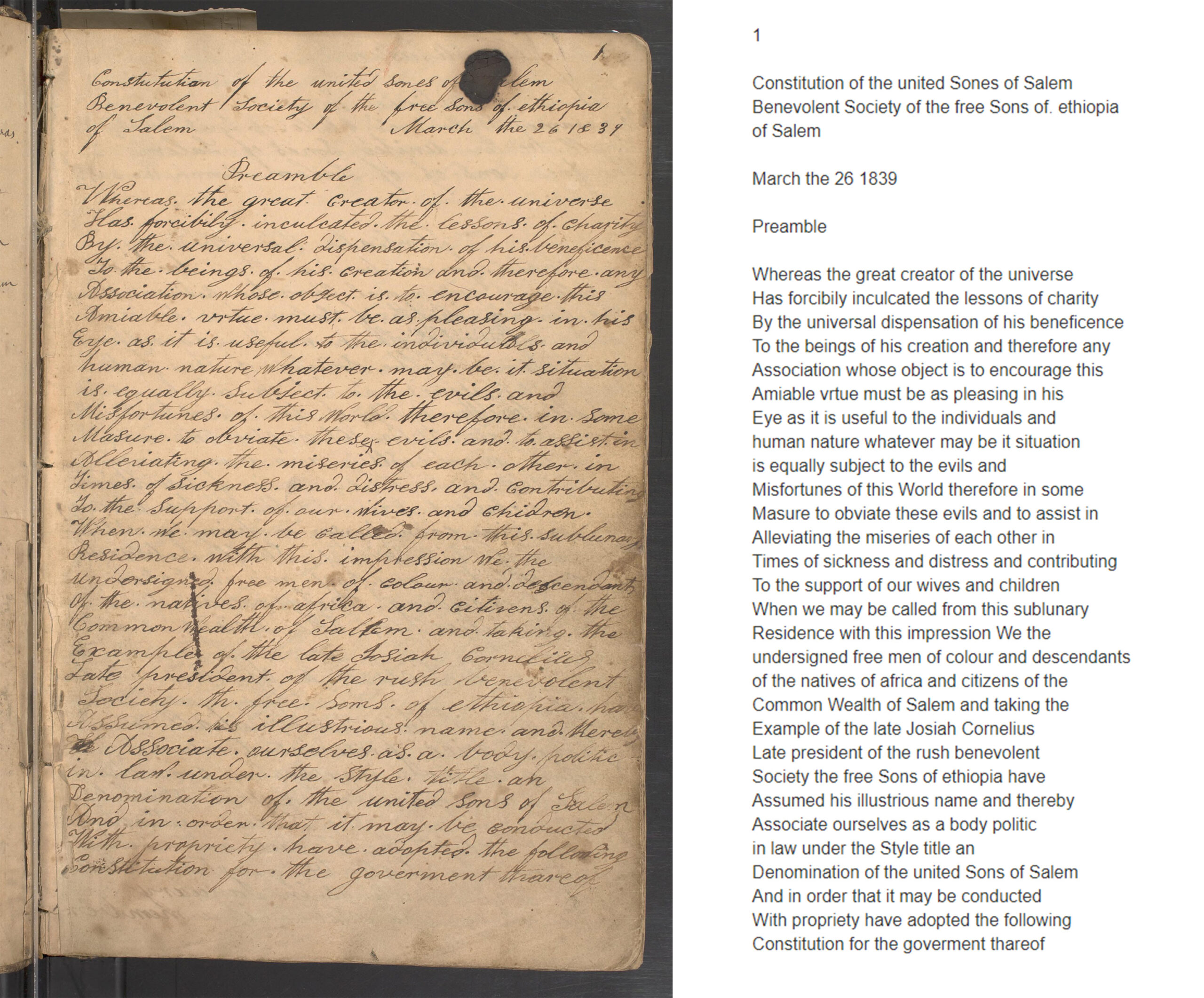The William L. Clements Library would like to announce the completion of transcriptions for the United Sons of Salem Benevolent Society Minute Book, which documents the business proceedings of a mid-19th century organization. A hybrid of an insurance agency and charitable operation, the United Sons bound together members of the African American community of Salem, New Jersey, providing a social network, a financial safety net, and support in the event of illness or death.
United Sons of Salem Benevolent Society Minute Book, 1839-1867, Digital Version.
Transcriptions by Forrester (“Woody”) Lee, Barbara Bradley, Terese Austin, and Elyce.
The Clements Library would like to thank the Digital Content & Collections team at the U-M Library, who host all of our digital collections and integrate the transcriptions into the collections when they are completed. We would also like to express our gratitude to Woody Lee, for the considerable time he dedicated to transcribing the United Sons of Salem Benevolent Society Minute Book. He was also kind enough to share comments with us explaining his interest in the project, his experience with the FromThePage software, and reflections on the content of the volume.
* * *
Comments by Forrester “Woody” Lee, New Haven, Connecticut:
I’ve known about these United Sons of Salem and their minute book since I first started pursuing my paternal ancestry, which in the 1800s centered in the southern-most counties of New Jersey, including Mannington, a small town in Salem County. Because my family forebears seemed to be people of progressive bent with strong ties to local black Methodist churches, surely, I guessed their lives would be captured in the minute book. And so, I volunteered to participate in this collaborative undertaking, ultimately completing the first transcription of most pages. The “From the Page” transcription platform was very easy to navigate. I’ve read through many historical documents of the 19th century, but this project was my first in collaborative transcription. Quickly, I was able to decipher most of the handwriting and recognize phonetically spelled words. I gradually overcame the unconscious habit of correcting misspellings and grammatical errors.
While transcribing, I tried to imagine and understand the lives of these free Black men. But the record was relatively spare in documenting the essential business of their monthly gatherings, never commenting on local or national politics and events. Whether written before, during, or after the Civil War, the minute book record is unvarying in tone and format in documenting dues collection, treasurer’s reports, officer elections, acceptance of new members, the occasional revocation of membership rights, and disbursements for episodes of members’ illnesses and deaths. In the end, I never found the names of any of my direct-line relatives. Still, many of the surnames were well known to me, e.g., Valentine, Cuff, Gould, Cornish, Nichols, and Emery. These were men of very modest means in a society that severely limited their rights, privileges, and opportunities for advancement. Of necessity, they convened to safeguard members from the uncertainties of illness and death. While consistently mindful of their very limited means, they didn’t hesitate to levy small fines to correct proscribed actions and behaviors. In reading this record, we come to understand the collective voice of Black men to claim the rewards of a civil life.



